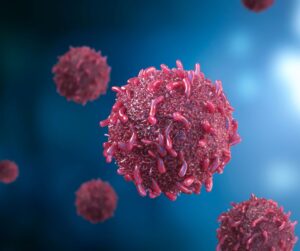Shiying Huang, RN, Nurse Practitioner student
Thanks to advancements of cancer treatments, the cancer death rate has decreased 23% from 1999 to 2019 in the United States. Nevertheless, lung cancer remains the leading cause of cancer death in 2022 in the United States. In patients with non-small cell lung cancer (NSCLC), the 5-year survival rate is about 25%; and 7% of patients with small cell lung cancer (SCLC) can achieve 5-year survival, for all stages.1 In patients with stage IV NSCLC, the 5-year survival rate is only about 6%.2 Cigarette smoking is known to be highly associated with lung cancer, which contributes to the majority of cases worldwide; yet the question remains, will quitting smoking with a diagnosis of lung cancer actually help a patient live longer?
Recently, a systematic review and meta-analysis related to smoking cessation at or around diagnosis of patients with lung cancer was conducted by the University of Florence. The authors used Medline and Embase as databases for the literature search. They included articles that assessed the overall survival (OS) of patients who quit smoking at diagnosis or up to 12 months before diagnosis vs patients who continued smoking. Twenty-one articles were selected for review based on inclusion and or exclusion criteria, which analyzed over 10,000 patients.3
The authors found a 29% improvement of the OS rate in patients who quit smoking compared to continued smokers, regardless of histologic subtype. The strongest correlation with improved survival was for patients who quit smoking at or around the time of diagnosis as opposed to those who quit up to 12 months prior to diagnosis.3
Also, progression-free survival (PFS) and disease-free interval seemed to be improved for patients with SCLC who quit smoking at diagnosis, but for NSCLC this trend did not hold true in the selected studies.
The study authors suggest several reasons why these trends with lung cancer and tobacco smoking occur. First, there are possible biologic mechanisms to explain the correlation between smoking cessation and OS from lung cancer. Tobacco smoking contributes to tumor growth, progression and increased risk of other primary cancers. Smoking can also decrease efficacy and tolerability of radiation and complicate postoperative complications. Another possible mechanism is that smoking can cause epigenetic changes as evident by the changes in the DNA methylation level in patients who continued smoking.3
Although this study suggests that quitting smoking can have survival benefits, it is uncertain if this benefit is purely the result of smoking cessation. Many other factors can affect both the likelihood of quitting and survival. Patients involved in these studies were at different stages of lung cancer. Potentially patients who were at early stages were more motivated to quit and received treatments with curative intent than those with more advanced disease. This is a possible explanation of why patients who quit correlated with better survival rate.
Another important limitation of the included papers is that there were no data regarding the association between smoking and smoking cessation on the effectiveness of different treatments. For example, smokers are more likely to benefit from immunotherapy, whereas targeted therapies often work better for non-smokers, since they typically have an actionable mutation. Smoking status was also self-reported in most studies, so there was no objective way to measure the validity of smoking cessation for most patients. Only one study measured exhaled carbon monoxide compared with non-smokers.
Regardless of limitations, the authors recommend patients with lung cancer at all stages quit smoking for potential longer survival. There is a clear trend showing improvement in OS for patients with lung cancer who quit smoking, as well as a likely decrease in comorbid conditions also affected by cigarette smoking which could contribute to poor outcomes of health in general.
References:
- Centers for disease control and prevention. An update on cancer deaths in the United States. https://www.cdc.gov/cancer/dcpc/research/update-on-cancer-deaths/index.htm. Accessed February 15, 2022.
- American Cancer Society Facts & Figures. http://cancerstatisticscenter.cancer.org. Accessed February 15, 2022.
- Caini, S., Del Riccio, M., Vettori, V., et al. (2021). Quitting smoking at or around diagnosis improves the overall survival of lung cancer patients: a systematic review and meta-analysis. J Thorac Oncol. S1556-0864(21)03404-3. Advance online publication. https://doi.org/10.1016/j.jtho.2021.12.00

Shiying Huang, RN, NP student
Adult Gerontology Primary Care NP program – University of Pennsylvania







